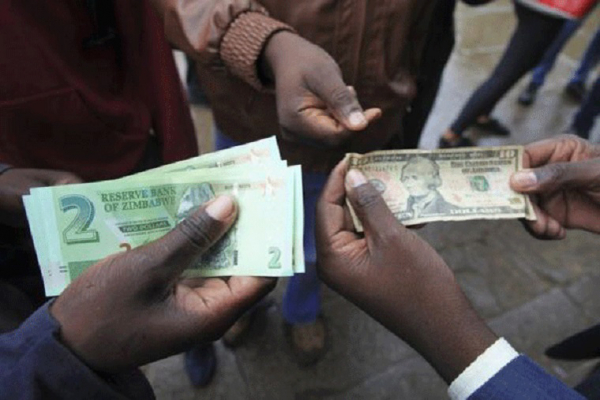
BY MISHMA CHAKANYUKA
THE Zimdollar has devalued by 135,7% to $15,25 against the greenback on the interbank market since it was declared the sole legal tender on June 24, owing to persistent foreign currency shortages and the deteriorating economic environment.
When the Reserve Bank of Zimbabwe scrapped the use of a basket of other foreign currencies, the Zimdollar was trading at US$1:2,5, but as of yesterday, the interbank rate stood at US$1:$15,25.
The interbank foreign exchange market was introduced in February this year to allow companies to trade forex, but access to foreign currency has remained challenging for businesses.
On the parallel market, the local currency was trading at 1:$17 against the greenback, a testimony of serious hard currency scarcities battering the economy.
This comes after the International Monetary Fund team which was in the country for the Article IV Consultation that coincided with the first review of the Staff-Monitored Programme last month told authorities that there was need to contain fiscal spending consistent with non-inflationary financing, tighten monetary policy to stabilise the exchange rate and start rebuilding confidence in the national currency.
The Washington-based Bretton Wood institution noted that weakening confidence, policy uncertainty, a continuation of foreign exchange market distortions and a recent expansionary monetary stance has increased pressure on the exchange rate.
Economist John Robertson said the country should increase its exports to generate more foreign currency and have an increased ability to create its own money.
- Chamisa under fire over US$120K donation
- Mavhunga puts DeMbare into Chibuku quarterfinals
- Pension funds bet on Cabora Bassa oilfields
- Councils defy govt fire tender directive
Keep Reading
“We need to increase our exports by increasing production in order to earn more foreign currency and reduce our imports. We also need to increase the ability to create our own money so that we will not have to rely more on using foreign currency,” Robertson said.
He added that the prevailing economic environment is not conducive for investors because it kills market confidence.
“We are not getting any investors in the country because this environment is hostile to investors. We have created an economy that is harmful to ourselves. Some people are saying money is losing value, hence they are taking their money and banking it somewhere else which is not in this country, hence we still have cash shortages.”
Last week, the RBZ issued a directive to all banks to freeze the accounts of companies suspected of engaging in money-laundering activities and fuelling the foreign currency parallel market.
Before lifting the prohibition order, the central bank also banned all cash-in, cash-out and cash-back transactions, in a bid to eliminate the buying and selling of cash at a premium.
All these efforts have proven fruitless as the hard cash and foreign currency shortages persist.











